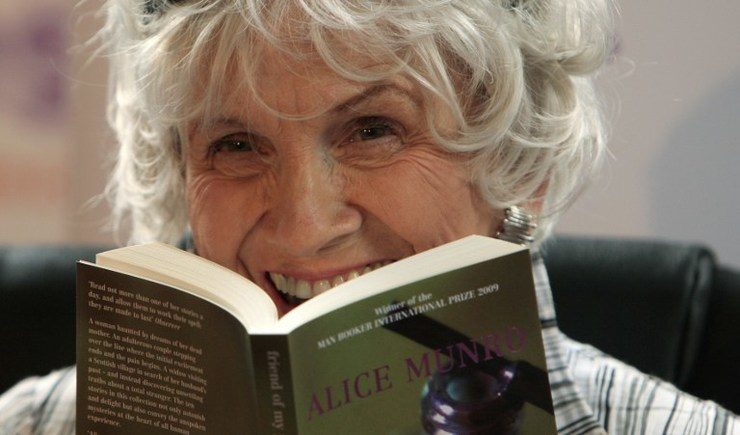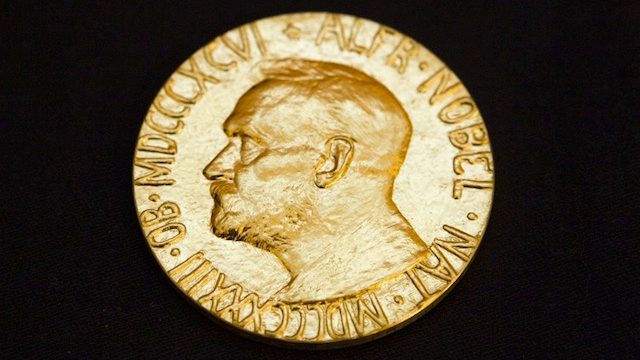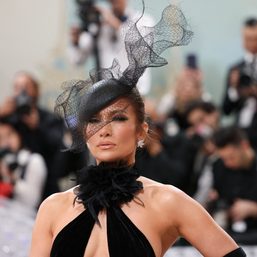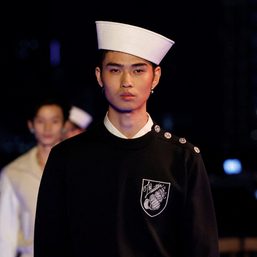SUMMARY
This is AI generated summarization, which may have errors. For context, always refer to the full article.

STOCKHOLM, Sweden (UPDATED) – Just hours before the award of the 2014 Nobel literature prize, Belarussian journalist Svetlana Alexievich and Japanese novelist Haruki Murakami were being tipped – but Kenya’s Ngugi wa Thiong’o was emerging as the favorite.
Ngugi wa Thiong’o was the most probable pick according to bets placed with bookmakers Ladbrokes late Wednesday, October 8, and he was near the top at online betting sites Betsson and Unibet.
“Suddenly, some names occur more often than others. This year, Ngugi wa Thiong’o is one of them,” said Jessika Gedin, the host of Babel, an influential cultural TV show on public broadcaster SVT.
Pia Bergstroem, a literary critic at the Swedish daily Aftonbladet, considered the 76-year-old Kenyan one of the likely choices as well, calling him “a popular storyteller and a dyed-in-the-wool anti-colonial dissident.”
As Stockholm’s literary circles try to draw up an “identikit” of the successor to last year’s winner, Canadian Alice Munro, several much-cited names were considered to be in the running.
Other possible winners include Adonis from Syria and a perennial contender, veteran Czech-born writer Milan Kundera.
The name of this year’s laureate will be made public on Thursday, October 9, at 1100 GMT.
In Stockholm or elsewhere, nobody really knows how the Swedish Academy – which chooses the winner – comes to its decision.
The deliberations take place behind closed doors and are only made public 50 years later.
What is known is that every year, the academy makes a list in February with all the nominations it has received – 210 this time around – which is cut down to five names in May.
In order to hazard a guess, everybody tries to figure out the logic behind the secretive deliberations of the academy’s members.
First, language can be a hint. English-speaking authors have won 27 times, compared to 13 times for French-speaking writers – the same number as German-speaking winners.
Claes Wahlin, a critic at Swedish tabloid Aftonbladet, said that it is “really very rare that the academy rewards the same language two years in a row”, which might exclude an English-speaking winner after Munro’s award in 2013.
If the same language is chosen again, he said, “it must be in two parts of the world that are very distant.” That would rule out US authors Joyce Carol Oates and Canada’s Anne Carson, who frequently crop up in speculation.
But on the other hand, according to Elise Karlsson, critic at Swedish newspaper Svenska Dagblad, “nothing would be more surprising than choosing two Canadians in a row. And the academy likes surprising.”
Geography could matter

FULL COVERAGE: NOBEL SEASON 2014
Physiology/Medicine | Physics | Chemistry | Peace | Economic Sciences | Literature
Geography could also be a good criterion, which again could favor Ngugi wa Thiong’o.
“It shouldn’t take long before Africa is rewarded,” publisher Elisabeth Grate said.
African authors have only won four times in the prize’s history, most recently South Africa’s J. M. Coetzee, in 2003.
The award could also go to Somalia’s Nuruddin Farah, who is the type of writer the academy likes, according to Wahlin.
Genre could also be a clue. “With Munro, they also rewarded the art of writing short stories, just like they recognized oral narrative with Dario Fo,” he said.
Novelists are over-represented on the laureate list, which could favor playwrights or poets such as Syria’s Adonis, France’s Yves Bonnefoy or South Korea’s Ko Un.
But the academy could also reward non-fiction and choose Belarussian Alexievich, said Karlsson.
Finally, the prize could go to a particularly elderly author, before it is too late.
“When they gave the prize to (Harold) Pinter and (Tomas) Transtroemer, it was partially about that,” said Wahlin. This argument could benefit Kundera, who is 85.
Haruki Murakami of Japan is a favorite among online punters but less popular among experts. “Murakami is probably a readers’ favorite and certainly popular with many journalists but he lacks that extra depth,” said Karlsson.
“The laureates must be able to transmit strong emotions, their writing must not only be entertaining, it must above all transmit a message that makes the reader think (and) see existence in a different way,” said Grate. – Rappler.com
Add a comment
How does this make you feel?





There are no comments yet. Add your comment to start the conversation.